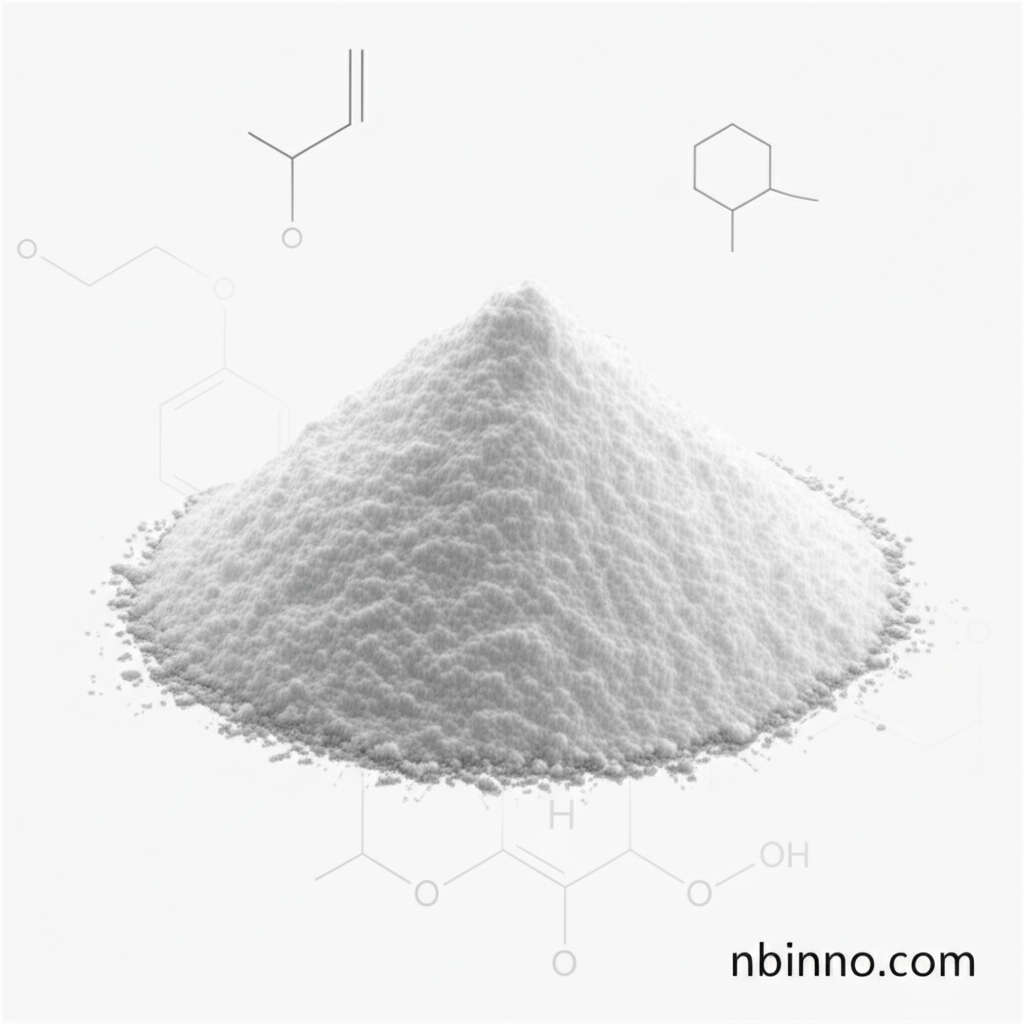Uridine 5'-Diphosphoglucose Disodium Salt: A Vital Compound for Nucleotide Sugar Metabolism and Therapeutic Applications
Discover the pivotal role of Uridine 5'-diphosphoglucose disodium salt (UDP-Glc) in biochemical pathways and its potential as a therapeutic agent. Explore its applications in research and development.
Get a Quote & SampleProduct Core Value

Uridine 5'-Diphosphoglucose Disodium Salt
As a reliable supplier in China, we offer high-purity Uridine 5'-diphosphoglucose disodium salt, a critical component for nucleotide sugar metabolism. This compound is an activated form of glucose, essential as a substrate for glucosyltransferases, enabling the biosynthesis of vital complex carbohydrates like glycogen, glycolipids, and glycoproteins. Its applications extend to research in enzyme characterization and therapeutic areas, making it a cornerstone chemical for scientific advancement.
- High Purity and Reliability: Our Uridine 5'-diphosphoglucose disodium salt boasts an assay of ≥98.0%, ensuring dependable results in your biochemical research and applications, supporting precise characterization of limonoid glucosyltransferase.
- Key Role in Nucleotide Sugar Metabolism: This compound is a fundamental substrate in metabolic pathways, acting as an activated glucose donor essential for cellular functions and the synthesis of complex biological macromolecules.
- Therapeutic Potential: Recognized for its use in the treatment of chronic alcoholism, UDP-Glc highlights its significance beyond basic research, offering potential in various health-related applications.
- Versatile Research Applications: Essential for understanding glycosylation processes, UDP-Glc serves as a valuable tool for researchers studying enzyme kinetics and cellular metabolic pathways.
Product Advantages
Enhanced Metabolic Pathway Understanding
Utilizing UDP-Glc as a substrate for glucosyltransferases provides critical insights into nucleotide sugar metabolism, aiding in the development of new therapeutic strategies and understanding cellular biosynthesis.
Biochemical Research Prowess
Its role as an activated glucose donor makes it indispensable for researchers aiming to elucidate the mechanisms of glycosylation and enzyme functions, supporting advanced biochemical research.
Potential in Health Management
The established use of UDP-Glc in managing chronic alcoholism demonstrates its capacity to positively influence metabolic disorders, underscoring its therapeutic value.
Key Applications
Nucleotide Sugar Metabolism
Essential for understanding how cells process and utilize sugars for various biosynthetic pathways, crucial for research into metabolic disorders.
Glycosylation Research
Serves as a key substrate for glucosyltransferases, enabling studies into the formation of glycoproteins and glycolipids, vital for cellular signaling and structure.
Therapeutic Development
Investigated for its role in treating conditions like chronic alcoholism, showcasing its potential impact on human health and well-being.
Enzyme Characterization
Used to characterize enzymes like limonoid glucosyltransferase, advancing the understanding of their specific roles in biochemical reactions.
